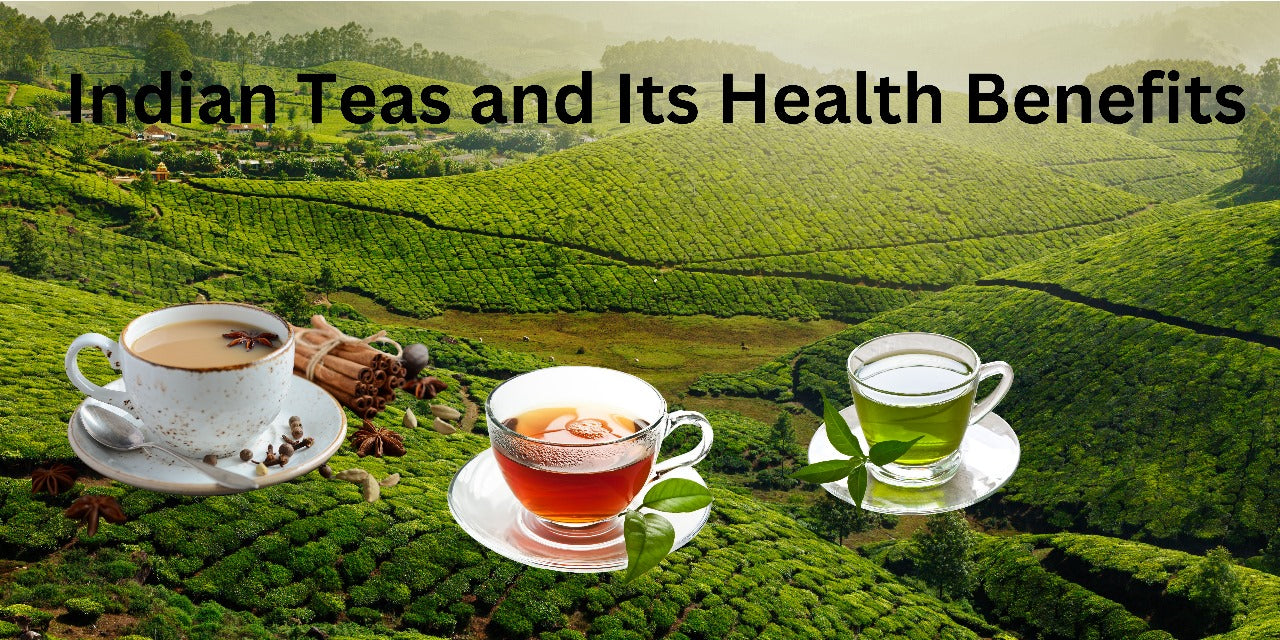Introduction
India is renowned for its rich and diverse tea culture, offering a wide array of flavors and health benefits. From the world-famous Assam black tea to the aromatic Darjeeling tea, each variety has its unique characteristics and potential health benefits. Whether you are a tea enthusiast or simply looking to explore the vast world of Indian tea, this article will guide you through the different types of Indian tea and their potential health benefits. So sit back, relax, and delve into the enticing world of Indian tea!
The importance of tea in Indian culture
Tea holds a significant place in Indian culture and society. It is more than just a beverage; it is a ritual, a tradition, and a symbol of hospitality. Indian tea is deeply ingrained in everyday life, from morning chai to evening tea parties.
In India, tea is considered an essential part of social gatherings and ceremonies. It is often offered to guests as a welcoming gesture and is served during festivals and weddings. Tea breaks are a common occurrence in offices, where colleagues come together to sip a cup of tea and engage in informal conversations.
Moreover, Indian tea plays a vital role in Ayurvedic medicine, an ancient holistic healing system. The medicinal properties of various teas are recognized and often used in Ayurvedic remedies to treat different ailments.
Understanding the cultural significance of tea in India allows us to appreciate its significance beyond taste and health benefits. So, let's dive deeper into the different types of Indian tea and explore their unique flavors and potential health benefits in the next section. Stay tuned!
Exploring the different types of Indian tea and its health benefits
In this section, we will dive deeper into the different types of Indian tea and explore their unique flavors and potential health benefits. India is known for its diverse tea production, with each region specializing in its distinct variety.
India's renowned export, Masala Chai, embodies a rich cultural diversity. A blend of black tea, sugar, and a medley of spices, including ginger, clove, cardamom, and cinnamon, varies in every Indian household. Offering benefits like appetite enhancement, metabolism boost, antioxidants, and natural immunity support, Octavius presents Masala Chai in diverse packaging options.
Indigenous to Assam, this black tea stands out for its robust malt flavor and briskness. Beyond its culinary appeal, Assam tea contributes to mental clarity and protects against certain cancers, making it a globally favored choice, whether served with milk or iced.
Beyond its health benefits, green tea is a sensory delight. Octavius offers various types, including Mint, Honey, Honey Lemon, Kashmiri Kahwa, Chamomile, Rose, and Cinnamon. Recognized as the healthiest beverage globally, green tea supports the immune system, aids in natural detox, and complements weight loss efforts.
Hailing from the Kashmiri valleys, this exotic tea boasts bold flavors, best enjoyed during winter. Known for its detoxifying properties, aiding digestion, promoting weight loss, and enhancing skin glow, Kashmiri Kahwa is a sensory masterpiece.
Nilgiri High-Grown Black Tea:
Sourced from the Southern Western Ghats, this blue mountain tea is prized for its intense aroma and potential health benefits. It's not only a treat for the taste buds but also contributes to battling diabetes, weight loss, improved oral health, stress reduction, and anti-aging.
Crafted from Camellia Sensis, white tea's unique processing technique yields a beverage rich in antioxidants. With lower caffeine content, it's an excellent choice for health-conscious individuals, promoting oral health and potentially preventing various cancers.
Herbal teas, or tisanes, encompass a diverse range. Chamomile aids sleep and relaxation, Tulsi boosts the immune system, Mint alleviates various ailments, Ginger treats dyspepsia, and Rose lowers blood pressure. Each herbal tea variant comes with its unique set of benefits.
Derived from the same plant as green tea, black tea undergoes fermentation, resulting in a darker color and fuller flavor. Rich in flavonoids, black tea contributes to reducing inflammation and bolstering the immune system.
A traditional Chinese tea, Oolong tea undergoes partial oxidation, striking a balance between green and black teas. Its amino acid content, particularly l-theanine, aids in anxiety reduction and cognitive health protection.
Conclusion: Choosing the right tea for your health needs
In conclusion, masala chai is not the only type of Indian tea that offers health benefits. There are several other varieties of Indian tea that are worth exploring for their unique properties and potential health advantages. Whether you are looking to improve digestion, boost immunity, or enhance cardiovascular health, there is a tea out there that can cater to your specific needs.
Green tea, for instance, is known for its high concentration of antioxidants, which can help fight against oxidative stress and reduce the risk of chronic diseases. Tulsi or holy basil tea is revered for its adaptogenic properties, which can help alleviate stress and promote mental well-being. Additionally, hibiscus tea has been found to have cholesterol-lowering effects, making it a great choice for those concerned about heart health.
By choosing the right tea for your health needs, you can enjoy not only a delicious and comforting beverage but also contribute to your overall well-being. So, venture beyond masala chai and explore the world of Indian tea to discover your perfect cup of health and wellness.




